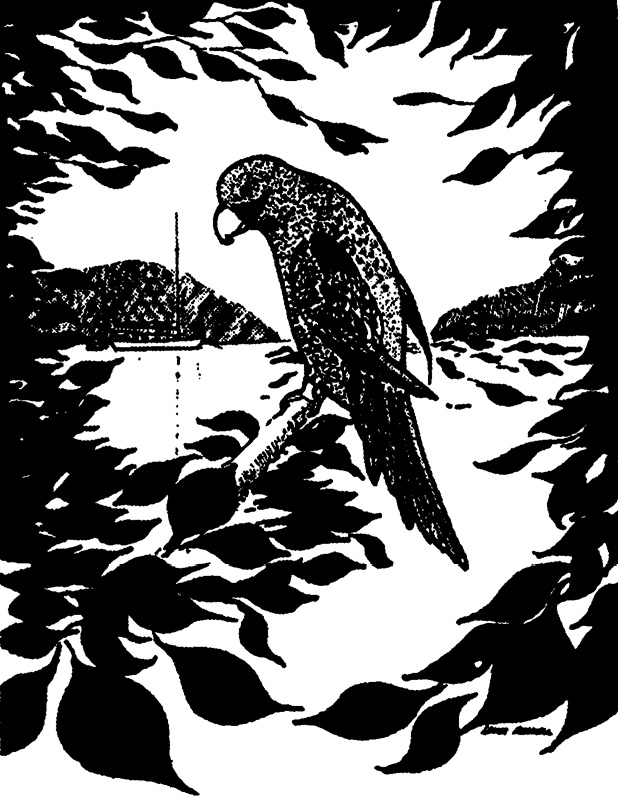A, B, Sea
Also by Jack Lagan: The Barefoot Navigator: Navigating with the Skills of the Ancients
Praise for The Barefoot Navigator
The Barefoot Navigator is a cleverly written little book that combines the history of the ancient art of navigation with the practical application of those techniques today. Ocean Navigator
From how to analyze clouds and currents to determine direction to how 21st-century sailors can integrate these techniques with modern equipment, any sailor will find The Barefoot Navigator intriguing. Midwest Book Review
An exciting read that makes a compelling argument: To navigate better and with greater satisfaction, sailors must learn more about the sea around them. Cruising World
This book investigates... navigation capabilities and shows you how practical, technology-free navigation can be used to enhance modern navigation. Interesting stuff! Latitudes & Attitudes
A, B, Sea
A Loose-Footed Lexicon

Jack Lagan
SHERIDAN HOUSE
Published by Sheridan House
4501 Forbes Boulevard, Suite 200, Lanham, Maryland 20706
www.rowman.com
10 Thornbury Road, Plymouth PL6 7PP, United Kingdom
Distributed by NATIONAL BOOK NETWORK
Copyright 2003, 2014 by Jack Lagan
Preface to second edition 2014 by Jack Lagan
All rights reserved . No part of this book may be reproduced in any form or by any electronic or mechanical means, including information storage and retrieval systems, without written permission from the publisher, except by a reviewer who may quote passages in a review.
British Library Cataloguing in Publication Information Available
Library of Congress Cataloging-in-Publication Data
Lagan, Jack.
A B Sea : a loose-footed lexicon / Jack Lagan.
p. cm.
Includes bibliographical references.
1. SailorsLanguageDictionaries. 2. English languageSlangDictionaries. 3. Naval art and scienceDictionaries. I. Lagan, Jack. II. Title.
PE3727.S3 L34 2003 2003000286
ISBN 978-1-57409-322-3 (pbk. : alk. paper)
ISBN 978-1-57409-323-0 (electronic)
 The paper used in this publication meets the minimum requirements of American National Standard for Information SciencesPermanence of Paper for Printed Library Materials, ANSI/NISO Z39.48-1992.
The paper used in this publication meets the minimum requirements of American National Standard for Information SciencesPermanence of Paper for Printed Library Materials, ANSI/NISO Z39.48-1992.
Printed in the United States of America
Ten Remarkable Facts from the Loose-Footed Lexicon
There are so many names for the different parts of a boat that even professional seamen would forget them. When such unfortunate lapses of memory occurred, they would substitute chicken-fixing, gill-guy, wim-wom, or even gadget. Jack! Haul in that er... timmey-noggy! See gadget .
The principle of the diesel engine was first drawn up in 1890 by an Englishman with the splendid name of Herbert Akroyd. If history had run a different course, we would be calling on the helmsman to Start the Akroyd! See diesel engines .
It wasnt until three years later that a German engineer called Rudolf Diesel patented the diesel engine as we now know it. Diesel died in mysterious circumstances in 1913 when he disappeared over the side of a ferry; Akroyd was not a suspect. See diesel engines .
A GPS receiver once appeared as a key witness in a murder trial. See Murder on the High Seas .
Satellite navigation systems such as GPS are the only known practical application of Einsteins Theory of Relativity. See gps , Galileo .
Seamen in the days of sail were allowed to wear a ring through one ear to show they had passed the Cape of Good Hope and in the other after passing Cape Horn. See earring . Similarly, officers were allowed to put a foot on the Wardroom table for each Cape passed.
To seduce the maggots and weevils out of their hard tack biscuits, sailors would cover a plate of them with fresh fish entrails. See hard tack .
The 100 percent guaranteed instant cure for seasickness is to stand under a tree. See seasickness .
In the days long before Emergency Position Indicating Radio Beacons (EPIRBs) there was an understanding among seamen that, should they run out of food while adrift at sea, they would start to eat each other. See cannibalism .
The biggest cocktail ever was made on October 25, 1599, by Sir Edward Kennel, Commander in Chief of the English navy. The monster punchenough for 6,000 party guestsincluded eighty barrels of brandy, nine of water, 25,000 large limes, eighty pints of lemon juice, 1,300lb of Lisbon sugar, 5lb of nutmeg, and 300 biscuits, plus a giant cask of Malaga wine. Could Sir Edward have overdone it with the water? See punch .
Introduction
Throughout the course of the 20th century, and especially after World War II, seafaring became more of a personal pursuit and less of an industry; more civilian and less military; and at the same time more high-tech and less rudimentary. But the underlying elements have remained the same: boats, sea, wind, and seafarers in search of excitement, adventure, and escape. For much of the latter half of that century I have raced dinghies, fished offshore, delivered charter-yachts, fixed weather-fax systems, gunk-holed in skiffs, and lived aboard a junk-rigged schooneranything to avoid having to turn up at an office before my eyes could make out shapes.
Words can develop special meanings for each individual; they can trigger off memories, emotions, ideas, and even opinions. The selection of terms and expressions for inclusion in this lexicon was based purely on personal preference and influenced by my fascination, as a writer and navigator, with the origin of words in everyday use in todays seafaring community. English is a great borrower, and side by side with words that stem from Old English and Anglo-Saxon are just as many that come from Dutch, French, Old German, Norse, Spanish, Tamil, Malay, and even Chinese. The genealogy of jargon is global.
It is fascinating that words written in the annals of 14th-, 15th-, and 16th-century voyaging remain in the vernacular of 21st-century seafarersbut it is far from thrilling if you do not know which ones they are. For that reason I have included illustrative passages from classic books of the sea. These sources include some novels and short stories; when Jack London describes a boat, you can be confident that the words he uses, even in fiction, are technically the correct ones. In other cases the entries here are an unabashed vehicle for a personal anecdote or for a little tub-thumping.
Inevitably for a book with a jib cut like this ones, I was drawn into an exploration of those nautical expressions that richly texture everyday English. We are predisposed, wrongly in my view, to condemn out of hand the use of jargon. The improvised invention of specialist terminology by groups with common interests is justified by their need for a shorthand form of communication. This is happening right now in the burgeoning world of computers and the Internet. As personal computers and the World Wide Web become increasingly influential in economic and social spheres, the language spills over into everyday parlance; people download ringtones for their user-friendly cell phones, which they use to network socially.
The influence of the jargon of the sea on the worlds most important and adaptable language pardonnez-moi, mes amis franais is hitherto unparalleled. Life in seagoing nations has over centuries led to the absorption of hundreds of borrowed expressions whose users are mainly clueless as to their origin. America, Canada, Australia, New Zealand, and the English-speakers of South Africa have inherited and enriched the legacy, as have those nations of the developing world on whom English was imposed as a consequence of Britains 18th- and 19th-century sea-borne imperial strategy. By and large, therefore, it has been unnecessary to plumb the depths in order to trawl up some lively specimens.
Next page
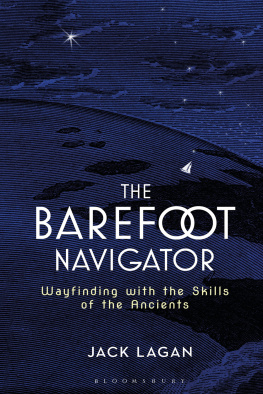
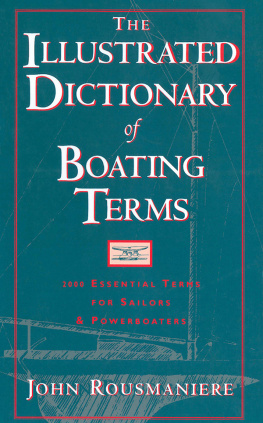







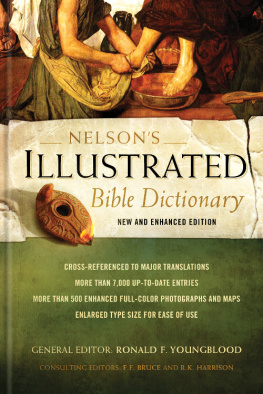

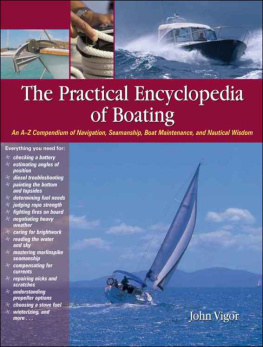


 The paper used in this publication meets the minimum requirements of American National Standard for Information SciencesPermanence of Paper for Printed Library Materials, ANSI/NISO Z39.48-1992.
The paper used in this publication meets the minimum requirements of American National Standard for Information SciencesPermanence of Paper for Printed Library Materials, ANSI/NISO Z39.48-1992.